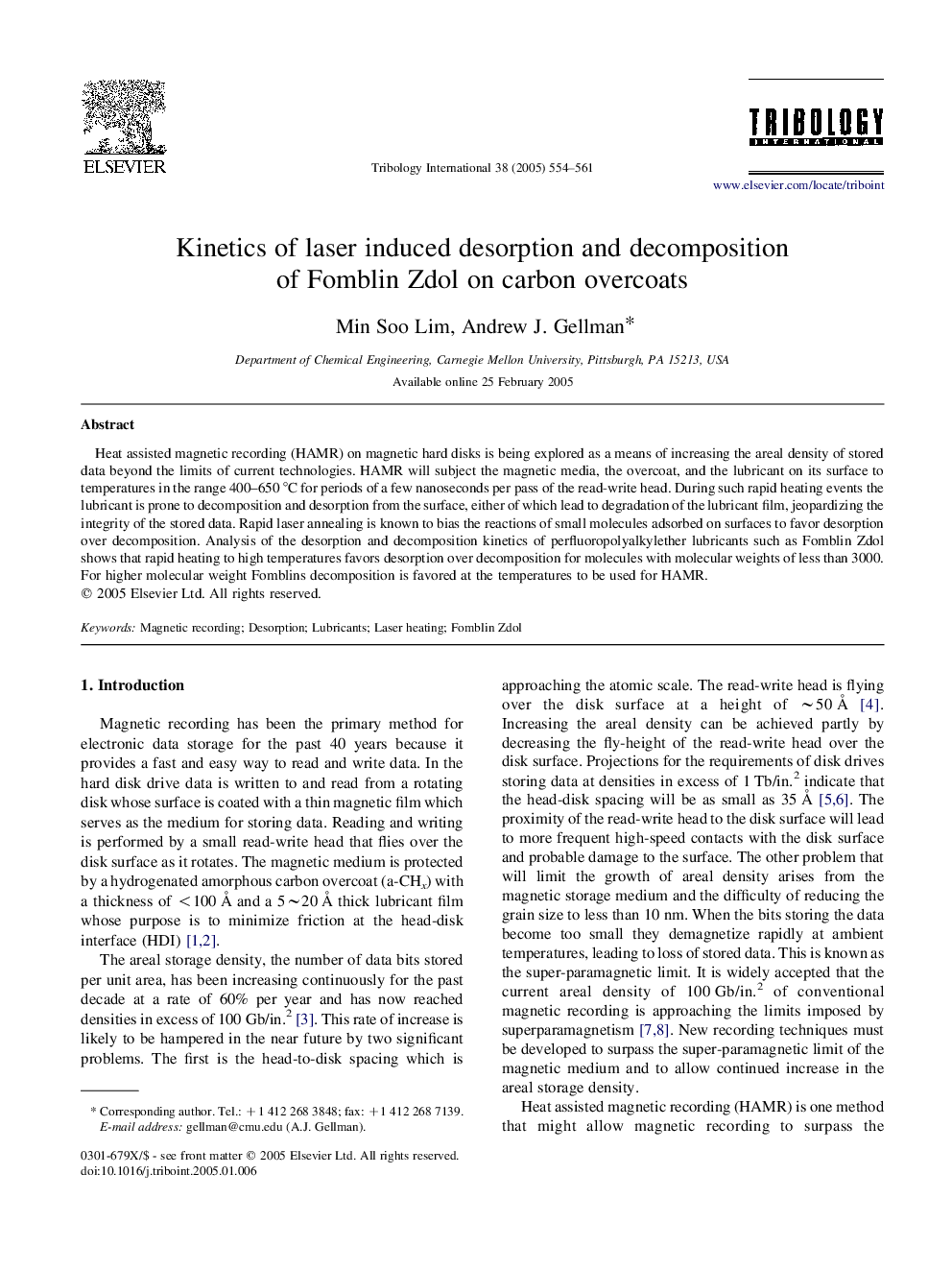| Article ID | Journal | Published Year | Pages | File Type |
|---|---|---|---|---|
| 9679201 | Tribology International | 2005 | 8 Pages |
Abstract
Heat assisted magnetic recording (HAMR) on magnetic hard disks is being explored as a means of increasing the areal density of stored data beyond the limits of current technologies. HAMR will subject the magnetic media, the overcoat, and the lubricant on its surface to temperatures in the range 400-650 °C for periods of a few nanoseconds per pass of the read-write head. During such rapid heating events the lubricant is prone to decomposition and desorption from the surface, either of which lead to degradation of the lubricant film, jeopardizing the integrity of the stored data. Rapid laser annealing is known to bias the reactions of small molecules adsorbed on surfaces to favor desorption over decomposition. Analysis of the desorption and decomposition kinetics of perfluoropolyalkylether lubricants such as Fomblin Zdol shows that rapid heating to high temperatures favors desorption over decomposition for molecules with molecular weights of less than 3000. For higher molecular weight Fomblins decomposition is favored at the temperatures to be used for HAMR.
Related Topics
Physical Sciences and Engineering
Chemical Engineering
Colloid and Surface Chemistry
Authors
Min Soo Lim, Andrew J. Gellman,
